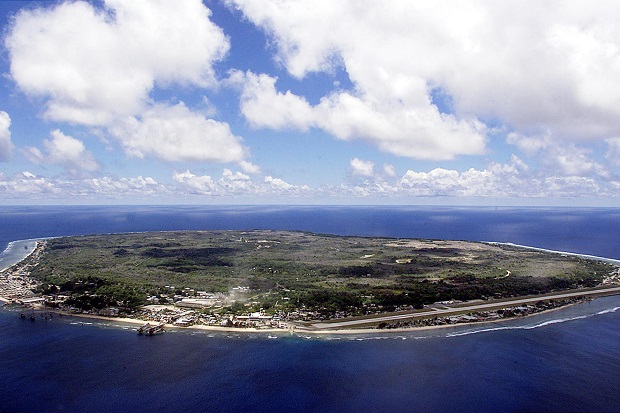Walking a lap of the North Pacific island of Nauru would take you three and a half hours. One kilometre inland, you would glimpse the republic’s phosphate mines. Living hundreds of kilometres from anywhere must sometimes feel like incarceration for the 10,000 or so Nauruans. What makes the republic seem even more prison-like is the way it is used by Australia as a detention and processing facility holding over 800 mostly Iranian asylum seekers. As fellow Commonwealth members, we should be concerned about this dot in the Pacific, and the way that Australia is off-shoring facilities there.
Nauru is used by Australia to distance itself from the human face of its asylum problem. Last month it emerged that a pregnant diabetic woman with two young children was being held at a processing centre comprising no more than a group of tents. The woman gave birth on November 8th in Brisbane, moved following international concern; the infant mortality rate on Nauru is almost twice Australia’s. In August a fire in Nauru’s hospital destroyed the island’s medical supplies during a time when around 100 detainees were suffering from an outbreak of gastroenteritis. Lest anyone think that this is an effective means to process asylum seekers, Nauru deals with cases at a rate of one per year. Besides the detainees, nobody involved is in much of a hurry.
It is ironic that Australia’s ‘Operation Sovereign Borders‘ created a camp in which conditions are so harsh that this summer around 1000 local Nauruans carrying machetes and pipes are reported to have assisted police to prevent the asylum seekers from breaking out during a riot causing millions of dollars of damage. The family tents on Nauru have been described as ‘inhumane’ with 30-degree heat and no running water. Up to 17 people share a tent, and there are only a handful of toilets for a population of hundreds. Even the staff at the facility suffer: the Sydney Morning Herald reported in October that hundreds of staff working for a contractor on the humid island have gone without flushing toilets, showers, or reliable power.
With an estimated rate of unemployment of 90 per cent, sources of income for the island have been creative. In the 1990s anyone could buy a passport and for $25,000 set up a bank on the island which levies no personal tax. Now Nauru is unusually willing to accept unwanted people. Some 10% of the Nauruans in employment work for the detention centre.
David Cameron has described the Commonwealth as ‘modern, mainstream and practical’ and yet in Australian dealings with Nauru we see a brutal, old-fashioned way of exporting problems. At the Commonwealth summit in Sri Lanka this week we should be asking Australia to improve conditions at the Nauru centre. The worst they can do is to accuse us Poms of hypocrisy. For the sake of conditions in such a marginalised country we should be able to stand that.






Comments